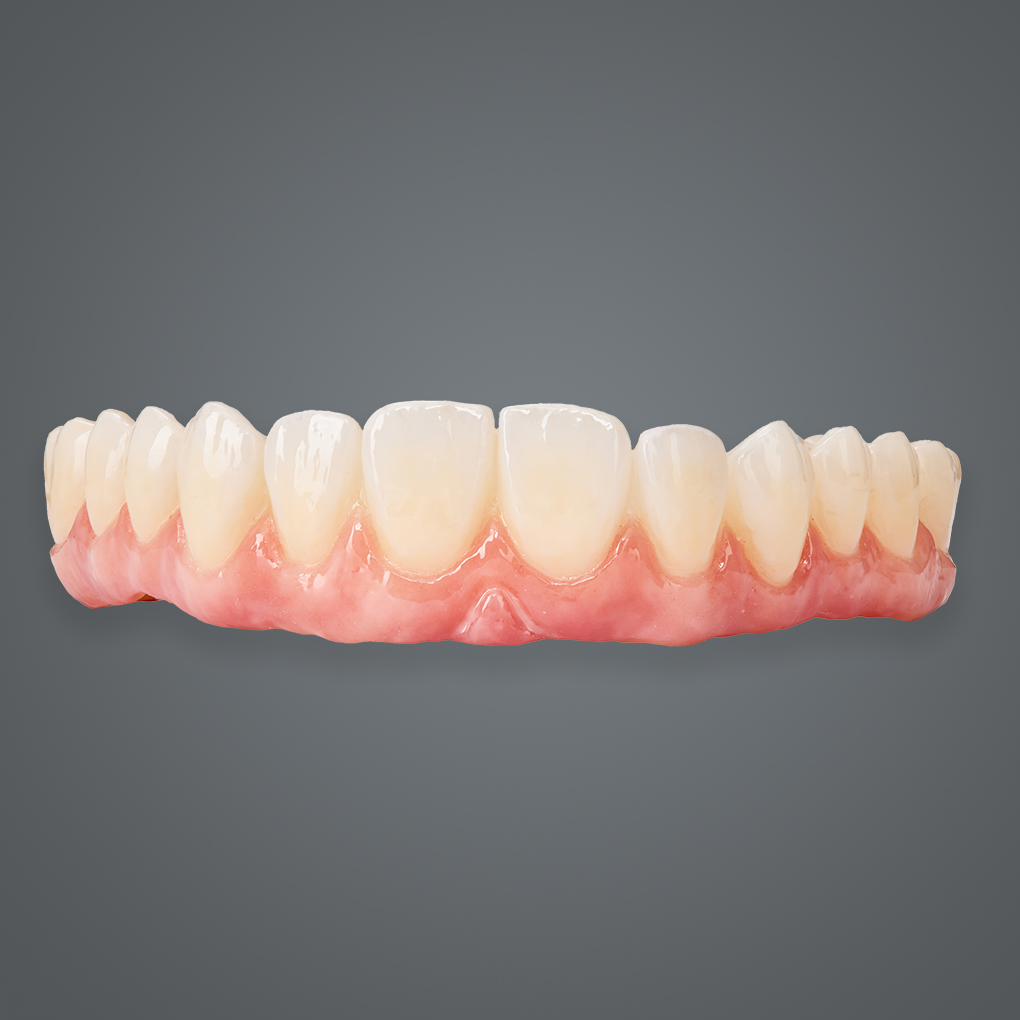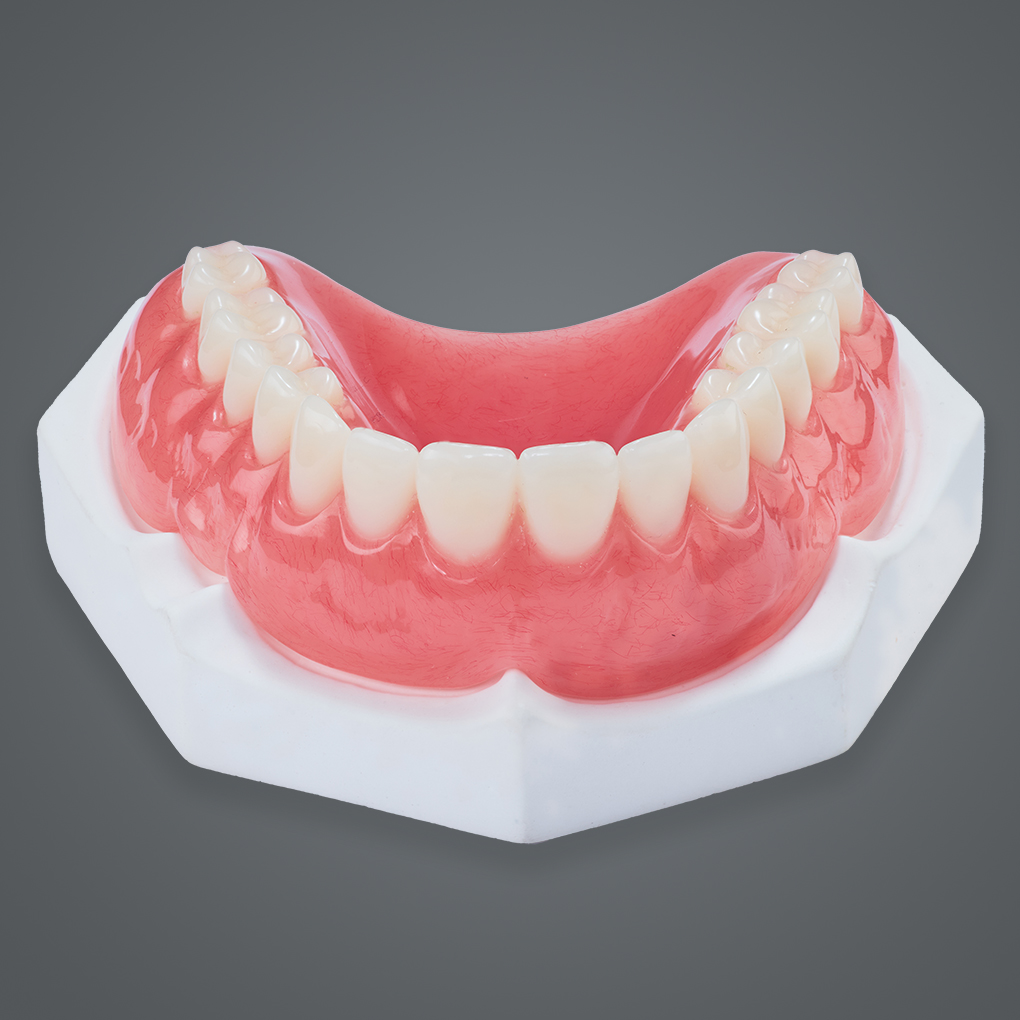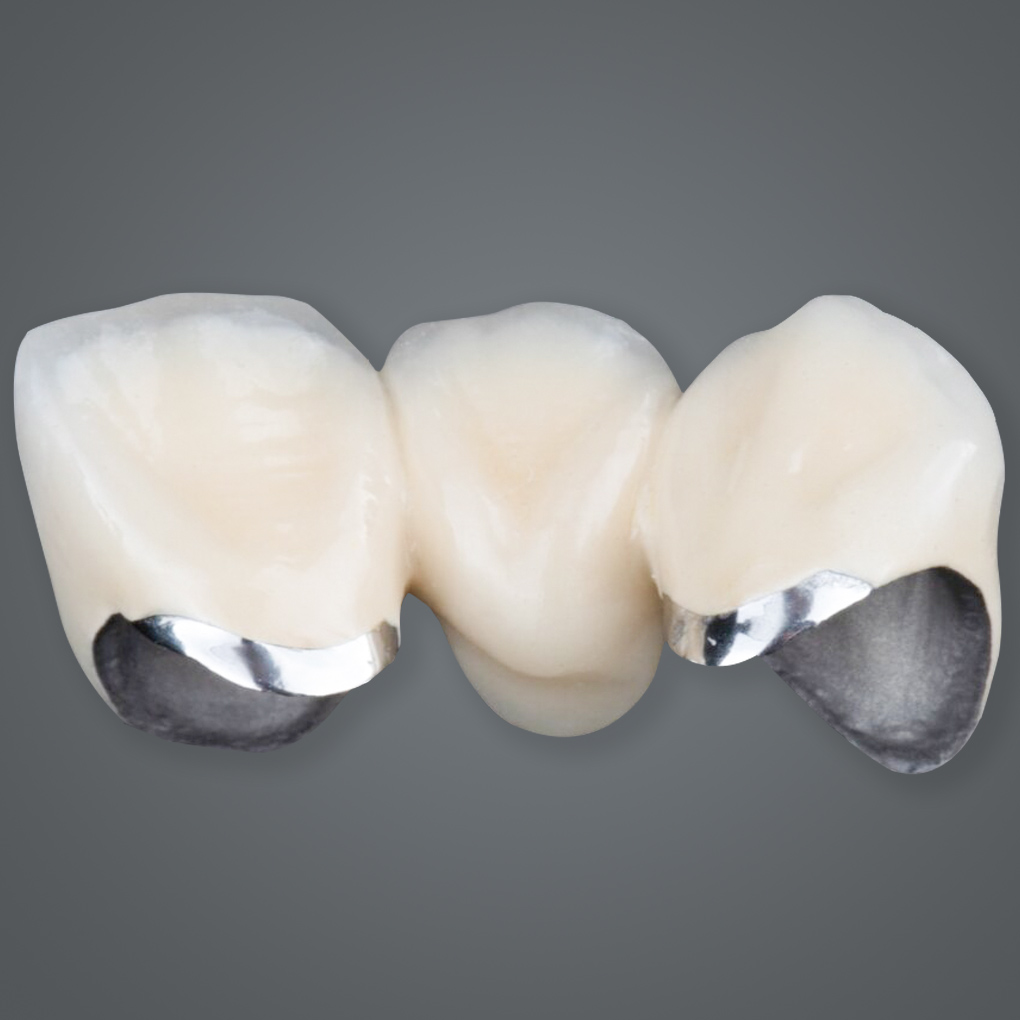When it comes to replacing missing teeth, removable dentures remain a popular choice for patients and dental professionals alike. They provide a cost-effective, flexible, and aesthetically pleasing solution for restoring smiles and oral functionality. For dental service organizations (DSOs) and dental clinics, understanding the various types of removable dentures is essential to meeting patient needs and optimizing costs.
In this article, XDENT LAB will explore the types of removable dentures and how outsourcing denture lab services can streamline your operations.
Contents
Understanding Removable Dentures
Removable dentures are prosthetic devices designed to replace missing teeth and restore functionality and aesthetics to a patient’s smile. Unlike fixed dental prosthetics, removable dentures can be easily taken out and cleaned, making them a convenient option for many patients.
With advancements in dental technology, removable dentures now come in various types, each tailored to suit specific patient needs. Let’s explore the most popular options.
Types of Removable Dentures
Full Denture
Full dentures, also known as complete dentures, are designed for patients who have lost all their teeth in the upper or lower jaw—or both. These dentures sit on the gums and are custom-made to fit each patient’s mouth. Typically made from acrylic resin, full dentures provide an effective solution for restoring oral functions and aesthetics.
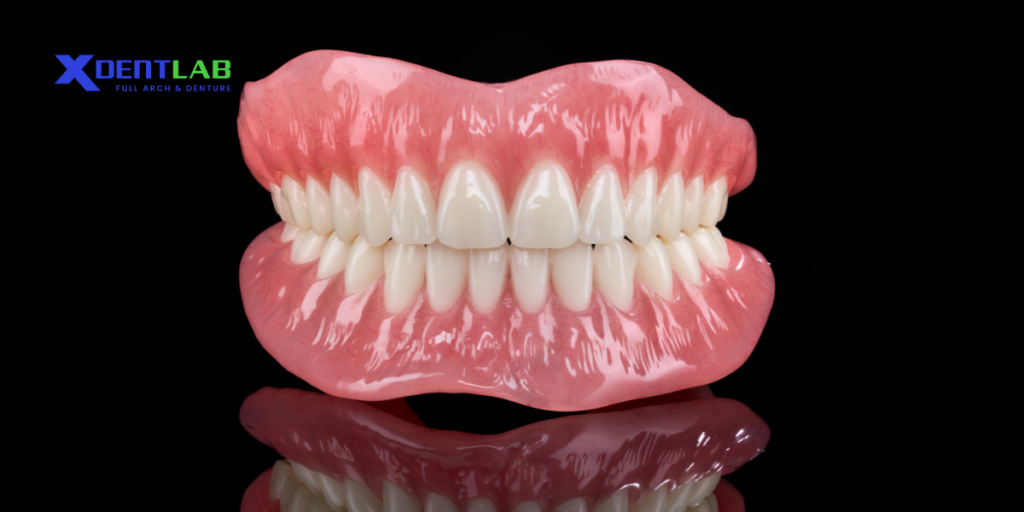
Key benefits of full dentures include:
- Restores full chewing capability.
- Improves facial structure and aesthetics.
- Cost-effective for total tooth loss.
Flexible Partial Dentures
Flexible partial dentures are an excellent choice for patients missing a few teeth but wanting a comfortable and aesthetic solution. Made from thermoplastic materials like nylon, these dentures adapt to the contours of the mouth, providing a snug fit without the need for metal clasps.
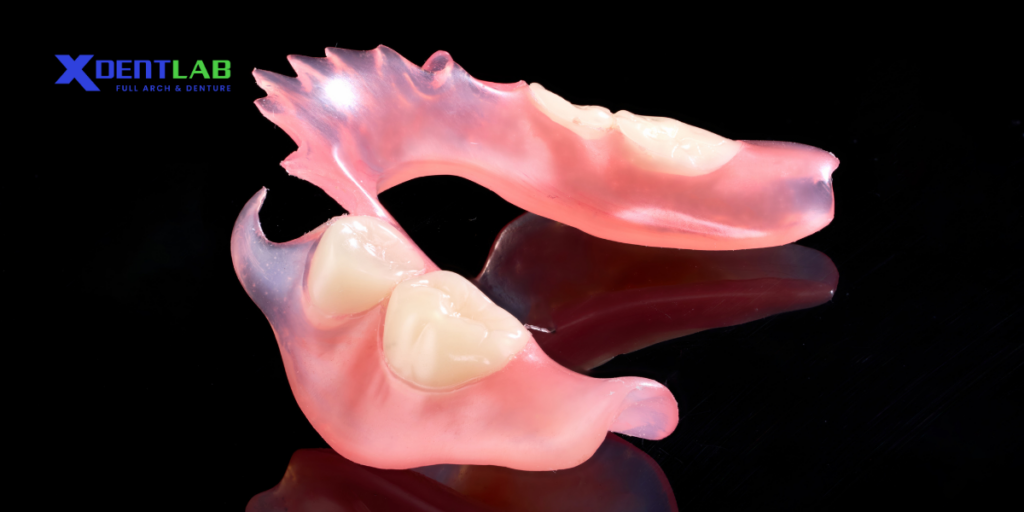
Advantages of flexible partial dentures:
- Lightweight and comfortable.
- Natural-looking, blends seamlessly with natural gums.
- Less risk of breakage.
Acrylic Partial Dentures
Acrylic partial dentures are a cost-effective solution for patients missing some teeth. These dentures are durable and can be easily adjusted or repaired.
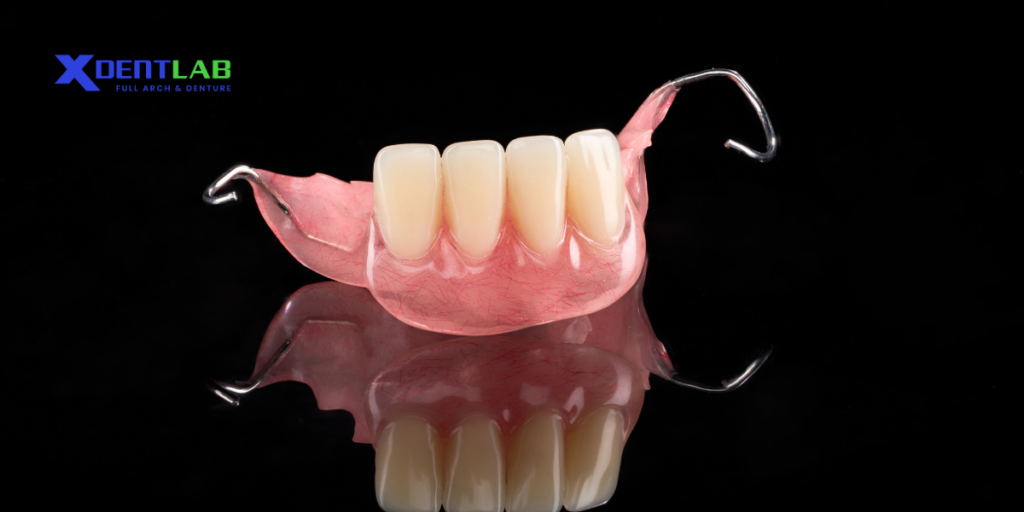
Features of acrylic partial dentures:
- Budget-friendly
- Easy to repair or modify
- Suitable as a temporary or permanent option
Flipper Dentures
Flipper dentures are temporary partial dentures often used as an interim solution while patients wait for a more permanent restoration. Lightweight and easy to wear, flippers are ideal for patients who want to maintain their appearance and functionality during the waiting period.
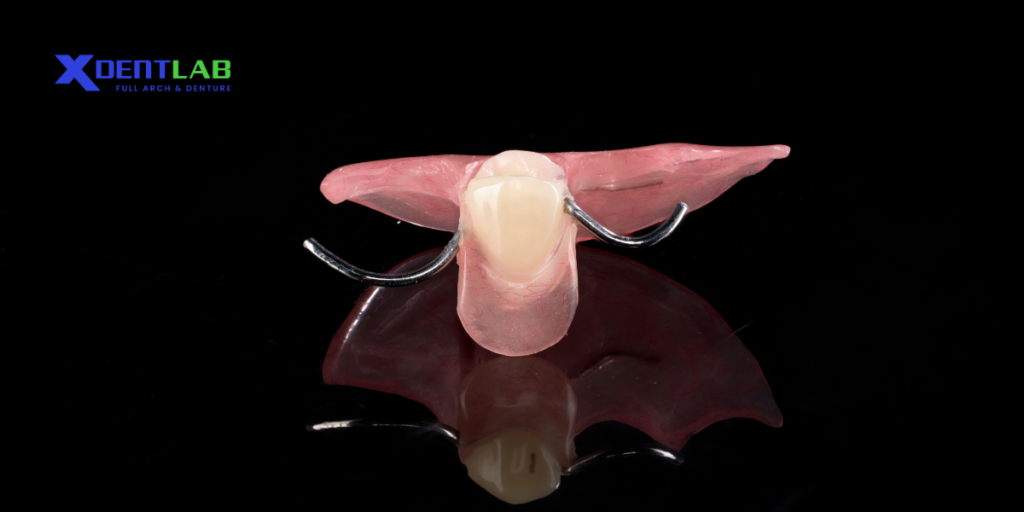
Benefits of flipper dentures:
- Quick and affordable solution
- Lightweight and easy to wear.
- Aesthetic improvement during treatment.
Metal Frame Partial Dentures
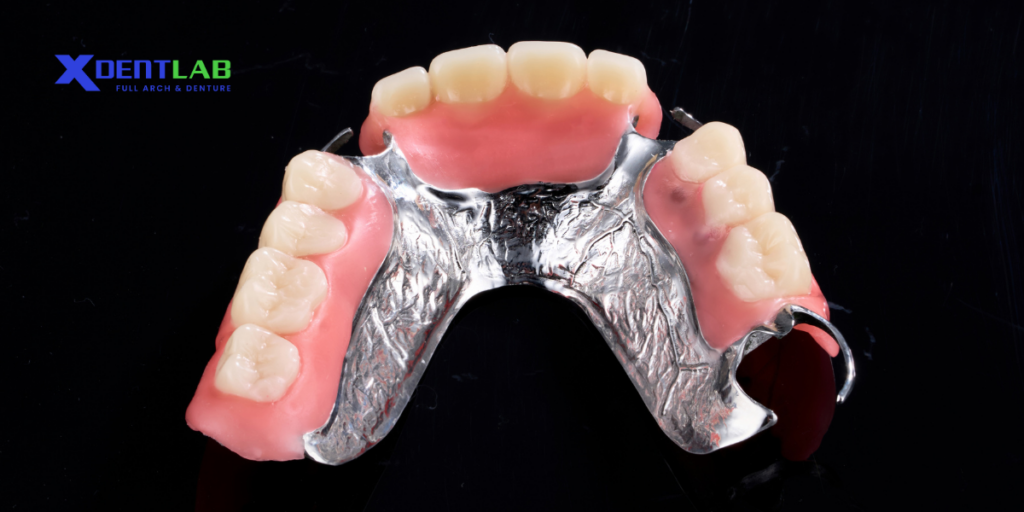
Metal frame partial dentures are known for their durability and stability. The metal framework, typically made from cobalt-chromium, provides a strong base for the artificial teeth while being lightweight and comfortable.
Why choose metal frame partial dentures:
- Long-lasting and durable
- Provide excellent support and fit
- Resistant to wear and tear.
How to Choose the Right Type of Denture?
Selecting the right type of denture depends on several factors, including the patient’s oral health, lifestyle, and budget. Here are key considerations:
Factors to Consider When Choosing Dentures
- Oral health: Assess the condition of the gums, remaining teeth, and jawbone.
- Aesthetic preferences: Consider the patient’s desire for natural-looking restorations.
- Functionality: Ensure the dentures provide adequate chewing and speaking ability.
- Budget: Factor in the cost of materials and fabrication.
- Maintenance: Discuss the care requirements for each type of denture.
Consulting with Your Dentist
A dentist’s expertise is invaluable in guiding patients to the right denture solution. By assessing oral health, bone structure, and personal preferences, dentists can recommend the most suitable option.
Should Dental Partners Outsource Their Removable Dentures?
Outsourcing removable denture fabrication can be a game-changer for DSOs and dental labs seeking to optimize operations. Here’s why:
- Cost Savings: Outsourcing to dental labs in cost-effective regions, such as Asia, can significantly reduce overhead expenses without compromising quality.
- Expertise: Partnering with specialized dental labs ensures access to skilled technicians and state-of-the-art technology.
- Scalability: Outsourcing allows dental practices to handle fluctuating demands efficiently.
- Focus on Core Services: By outsourcing lab work, clinics can concentrate on patient care and growing their business.
Learn more about Top Dental Lab Outsourcing based in Asia
Conclusion
Understanding the different types of removable dentures is essential for dental professionals seeking to provide tailored solutions to their patients. From full dentures to partial dentures, each option offers unique benefits suited to specific needs.
For dental service organizations and dental labs aiming to optimize operations, outsourcing removable dentures to trusted dental labs in Asia is a strategic move. With access to skilled craftsmanship, advanced technology, and cost-effective solutions, outsourcing ensures your practice stays competitive in today’s market.
Looking to partner with a trusted dental lab? Discover how XDENT LAB can meet your needs with premium outsourcing services from dental partners in the United States.
Join us as we explore the exciting daily work of removable dentures. https://xdentlab.com/xdent-gallery

